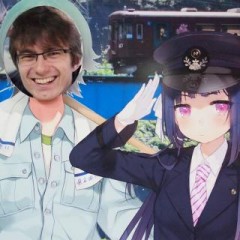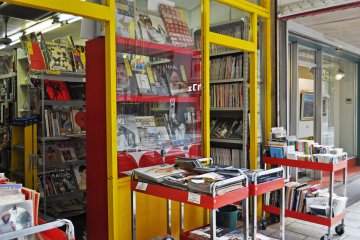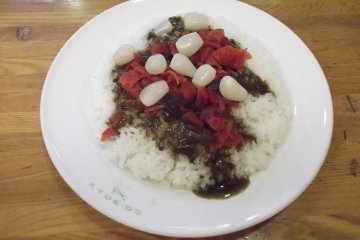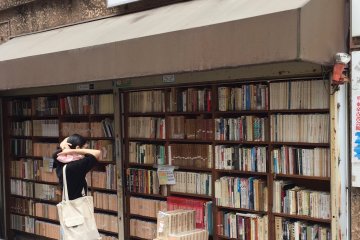Do you have a thirst for books about avant-garde art movements? Insect taxonomy? Early modern maps? Forgotten children's literature? Obscure occult sects? There are specialty stores in Tokyo devoted solely to these topics, but what's amazing is that all these specialty bookstores and many, many more are located in a single neighborhood called Jinbocho.
Jinbocho is usually a turn-off for tourists and idle expats since a fair amount of Japanese knowledge is required to browse and read. When I wax lyrical about this neighborhood, I am typically asked, "but are there English bookstores?" The answer is yes, if you know where to find them, or have the patience to scan the alleyways until you see one. My personal favorite foreign language store is Oshima Shoten, located at Jinbocho's easternmost corner. Despite its cramped 50-square-foot size, about 1/50 the size of a Barnes and Noble, it is packed from floor to ceiling with fascinating and fantastic English titles you've never heard of, and I have never been there without taking something home.
If you know Japanese or Chinese, though, or you're just willing to enjoy the beauty of crumbling manuscripts and retro magazines, Jinbocho is a book lover's heaven. Walk into a store and you might be transported to the 1960s, or the 1920s, or the age of the shogunate. In some, rare books are carefully documented and displayed, like a museum. In others, you will find early modern Buddhist training manuals scattered carelessly on the floor, with manga volumes piled on top.
Jinbocho is slightly hard to navigate. You may stumble upon something amazing, but you won't find a specific interest, like the antique traditional card game store, just by walking through the streets. Besides a dozen foreign language bookstores, there are also categories for art, science, society, sports and martial arts, history, religion, rare books, and "subculture" -- which might mean stores for railfans, military history, or manga, but also includes old photo collections of Showa-era celebrities.
Most of the shopkeepers are experts in their field and can help you find what you're looking for, if you are so obsessed that you want to purchase and read a rare book in Japanese. If you'd rather have a souvenir, ask for a copy of Jinbocho magazine (1000 yen), which showcases the most beautiful items curated by the various shops.











